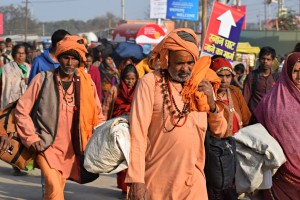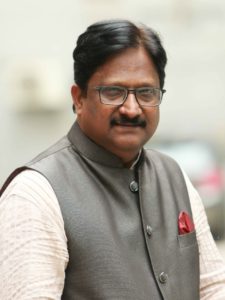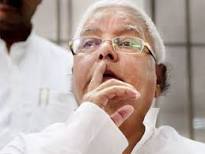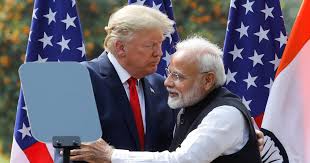BIHARIs AS MUCH ASPIRATIONAL AS PEOPLE ELSEWHERE: CASTE ANALYSIS IS OVER-SIMPLIFICATION
My blog was published by Global Bihari and I am giving that in full here the way it was published. I have argued strongly that the Caste factor is being overstressed in Bihar politics. An average Bihari is as much aspirational as people in other parts of the country.
https://globalbihari.com/bihar-is-as-much-casteist-as-other-parts-of-the-country/
“Bihar is as much casteist as other parts of the country”

Bihar elections 2020
Counterview

Don’t reject Bihar as Casteist: Aspirations rule voting behaviour
Is Bihar citadel of caste politics? It is as much casteist as other parts of the country. What is Dravidian politics in Tamil Nadu? Can we say that Karnataka is not dominated by caste politics? What is the politics of Maratha and non-Maratha in Maharashtra or Patidars and others in Gujarat? How about politics in other parts of the country? My issue is why single out Bihar?

Every time there are elections in Bihar, it is fashionable in Indian media and political circles to say that Bihar is a caste polarised society and the party or the alliance that has a better caste equation, shall win. In absence of any secular agenda primordial loyalties matter. Theoretically, coming together of families- considering that agricultural activity demands and promotes joint families- produce strong numbers enough to influence political trends. But the existential political realities could be quite different.
Also read: Can Bihar ever overcome caste politics?
Politicisation of caste is a phenomenon that produced caste loyalties of voters. But what happened when the politicisation was complete. Lalu Prasad Yadav’s perceived sense of deprivation consolidated his caste people behind him. But what happened once the process of empowerment was complete? He looted the State through corruption and empowered his close relatives there by producing a sense of disempowerment by his larger community/clan. People loyal to him on caste lines felt cheated since their lives did not change.

We must understand that caste factor gets neutralised since all parties would field candidates from the same caste. After that what? As for example, it is often said that Madhepura belongs to gope (Yadavs) in the same way as Rome belongs to the Pope. This means that this Lok Sabha seat belongs to the Yadava caste because of a predominant population of this caste.
In 1998 Lalu Prasad Yadav defeated Sharad Yadav from Madhepura but the latter avenged his defeat in alliance with the NDA (National Democratic Alliance) in 1999 Lok Sabha polls. And in 2019 Lok Sabha polls, Sharad Yadav as a candidate from Lalu’s party got defeated by Dinesh Chandra Yadav of the Janata Dal United.
Let us see another example. Lalu Prasad’s daughter Misa Bharti got defeated by NDA candidate Ram Kripal Yadav in 2014 and 2019 Lok Sabha elections from Pataliputra. Ram Kripal Yadav was Lalu’s strong aide and his shift to BJP none had imagined. In 2009 Lok Sabha elections, Ranjan Prasad Yadav of JDU had defeated Lalu Prasad from the same seat.
This means that you cannot take voters for granted. If families or caste were such strong loyalties, one would not have seen acrimonious fights and fragmentation of land holdings in rural Bihar. When such acrimonious fights happen, can the same people unite politically? My submission is it cannot.

And anti-Lalu forces in the form of BJP and NDA emerged to fulfil these aspirations. They needed good roads, water and electricity in their homes. I remember as a journalist, (BJP leader) Lal Krishna Advani explaining to the huge crowd at a rally in Muzaffarpur during Swaraj to Suraj rath yatra that Bihar would get good smooth roads. When I asked a young boy what he felt he said he did not know what good roads meant but there must be something good.

Bihar during Lalu’s time had become lawless and there used to be a self imposed curfew after dusk. If anyone ventured out he was sure to be looted by goondas. Kidnapping had become an industry and ransom threat was the norm. Patna High Court had said there was jungle raj in Bihar. Muscled people affiliated to Lalu could capture the houses of others and there was fear all around. Many people had to mortgage their land to goondas for getting government jobs if they failed to pay bribes.
One statement of late Prime Minister Atal Behari Vajpayee in 2005 in an election rally at Patna’s Gandhi Maidan described what Bihar was and how that single statement brought the mighty Rabri Devi government down. This was “mera Kishley lauta do” when a young boy Kishley was kidnapped by goons. His goons were Lalu’s arms through which he ran an illegal empire untouched by the police, that reportedly got their cuts.
This desire for change and the promises of better governance brought the National Democratic Alliance to power in Bihar surprising all those who added caste numbers and gave a decisive victory to Lalu Yadav. They were guided by the much acclaimed slogan “jab tak rahega samose me aaloo tab tak rahega Bihar me Lalu” (till samosas are stuffed with potatoes Lalu will stay invincible in Bihar ). This blinded the analysis of political analysts and media. But aspirations for better life is caste neutral more so when all parties try to keep social equations in mind in distribution of tickets. Caste, thus, becomes neutralised and what matters after that is track record and credibility of leaders on good governance and performance..
Caste is important in social interaction such as marriages and other cultural occasions. Although I have not attended any caste meetings, I do understand that it gives security and preserves culture. But it does not divide people. Cross caste marriages are very common among those who have migrated to urban areas. Machine grows class and land grows caste is true even now in most parts of India. Bihar is no exception.
What Bihar needs is better schools not charwaha vidyalayas, better health centres and better connectivity. The NDA under Prime Minister Narendra Modi in the country and Chief Minister Nitish Kumar in Bihar have delivered. Now we know that every district is going to have a medical hospital and every poor family is covered under ayushman yojana. The benefits of pro-poor schemes have reached the poor in Bihar. Nitish Kumar has delivered bijli, sadak and paani ( power, roads and drinking water)- the three crucial parameters of development. Free gas connections have gone to deprived families in the State.
The optics created by opposition leader Tejashwi Yadav of ten lakh government jobs will not work. Like a mirage it is trying to create an optical illusion. Such promises ungrounded in realities don’t get votes. Before we analyse Bihar, we must not forget that the State has been the cradle of civilization. The great Magadha Empire thrived here. Nalanda was the famous centre of learning. People are politically very conscious and every issue is debated threadbare on the streets without fear. The optics would not matter and reality would bite.
The victory of Rashtriya Janata Dal-Janata Dal United coalition in 2015 over the NDA was due to image of Nitish who gained prominence as Sushashan Babu in partnership with NDA. It is not without reason that Lalu Prasad announced him to be the chief minister candidate of the alliance since image was very important for the RJD to wash off its sins. But Nitish Kumar came back to the NDA fold when he realised that his image would get sullied in companionship with RJD leaders and their corrupt ways.
Now the same NDA alliance is back on the delivered performance and promises of a better future. The Chief Minister has full backing of the Prime Minister who has emerged as the country’s icon of development. The people of Bihar know who is what? When issues of daily existence and better life dominate the narrative, people don’t get swayed by caste affiliations. Bihar elections would testify to this.
*Sudesh Verma heads Bharatiya Janata Party’s National Media Relations. He also represents the BJP on national television channels in debates and is author of Prime Minister Narendra Modi’s biography – ‘Narendra Modi: The GameChanger’. The views published here are personal.

Comments
Post a Comment